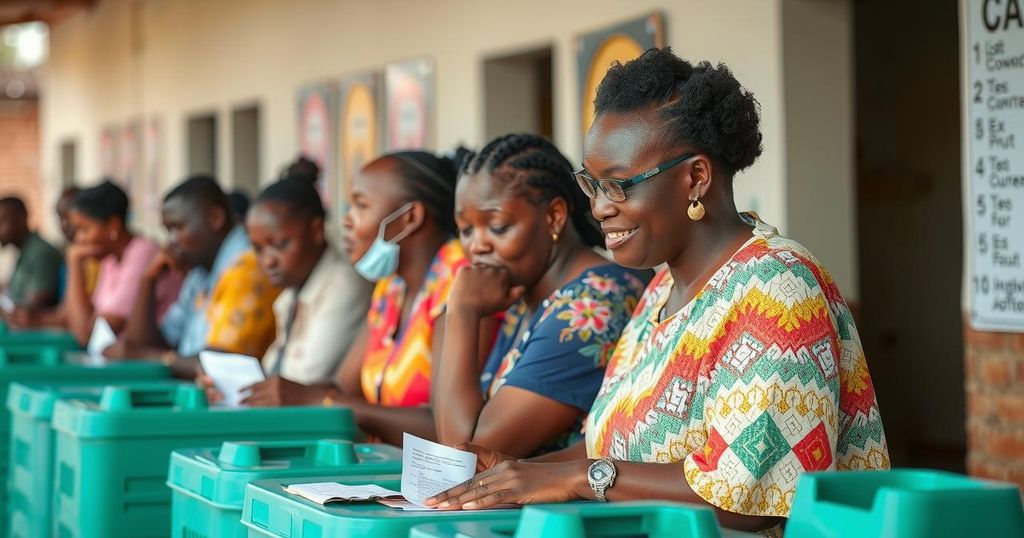Ghana’s General Election: A Democratic Test Amid Economic Hardship

Polls opened in Ghana for presidential and legislative elections amid the country’s severe economic crisis. With around 18.7 million registered voters, the elections are critical for democracy in a region facing violence and instability. However, the main candidates offer little optimism for meaningful change.
On Saturday, polling stations commenced operations for the presidential and legislative elections in Ghana, an event marked by significant public scrutiny given the nation’s current economic turmoil. Ghana, which is home to approximately 18.7 million registered voters, finds itself grappling with one of the most severe economic crises in decades. Despite the gravity of the situation, the leading candidates appear to offer minimal prospects for substantial change, creating a climate of disillusionment among voters. This election is not only pivotal for Ghanaian democracy but also carries implications for stability in a region troubled by extremism and political upheaval.
Ghana has historically been viewed as a beacon of democracy in West Africa; however, recent political challenges and economic hardships have overshadowed its reputation. The current economic crisis, considered the worst in a generation, has severely impacted citizens’ quality of life, leading to widespread disenchantment with the political process. As the country heads to the polls, the dichotomy between a pressing need for change and the perceived inadequacies of the candidates is particularly pronounced. This election serves as a critical juncture that could either reinforce or undermine democratic institutions in Ghana amidst regional instability.
In conclusion, the elections in Ghana represent a significant moment for the nation’s democracy amid an unprecedented economic crisis. With over 18 million voters, the outcome will reflect not only the political sentiments of the populace but also the potential for future stability in a region facing numerous challenges. Ultimately, the effectiveness of the candidates in addressing pressing economic issues will determine the trajectory of national progress in the coming years.
Original Source: www.washingtonpost.com







